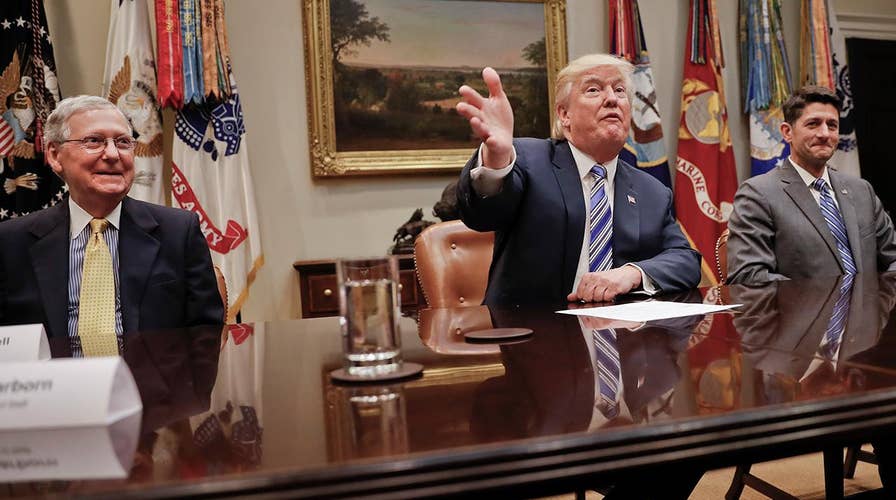Senate health care bill: How it compares to House version
Senate Republicans have unveiled the 'Better Care Reconciliation Act,' their plan to repeal and replace Obamacare. How does it differ with the House GOP's bill?
The Senate unveiled on Thursday its own version of health care legislation designed to replace ObamaCare.
Called the “Better Care Reconciliation Act of 2017,” the Senate plan could be voted on as early as next week. While the details of the legislation were largely kept secret until its unveiling, it does vary somewhat from the House’s already passed bill.
Read on for some key differences between the plans.
Tax credits
The Senate’s health care legislation would give tax credits based on age, income and geography — to a certain extent — like the Affordable Care Act already does, the Washington Post reported.
Tax credits under the House plan would primarily only be based on age.
Individual mandate
Under the Senate bill, the individual mandate — an Obamacare tax penalty imposed on those who don’t purchase health insurance — would be eliminated.
GOP SENATORS UNVEIL OBAMACARE OVERHAUL
The House legislation also does away with the individual mandate, but it does allow for insurance companies to impose a surcharge on those who purchase a new plan after letting their previous coverage lapse. While insurers would be able to impose up to a 30 percent surcharge, states would have the option to make the penalty harsher, according to the Washington Post.
Coverage
The Senate health care legislation is expected to provide coverage for 4 to 5 million additional people, according to an analysis from the health care advocacy group the Council for Affordable Health Coverage.
CAHC also predicted that premium increases expected with the House bill would be scaled back.
Opioid epidemic
The Senate legislation creates a $2 billion fund to provide grants to states for substance abuse and mental health treatment. Sen. Rob Portman, R-Ohio, had sought $45 billion over 10 years.
FOUR KEY REPUBLICANS COME OUT AGAINST SENATE HEALTH CARE BILL
The House did not include such an allocation.
Under ObamaCare, Medicaid expansion has enabled many states to provide comprehensive treatment to people caught in the opioid epidemic.
Medicaid
The Senate’s “Better Care Reconciliation Act of 2017,” stretches the phase-out of Medicaid expansion financing and higher payments would be provided through 2023.
The bill uses a less generous inflation adjustment than the House bill. But Medicaid cuts would be greater with this legislation than under the House bill, NPR reported.
HOUSE SPEAKER PAUL RYAN WANTS SENATE TO ACT ON HEALTH CARE
Under the House bill, the federal government’s monetary match for expanded Medicaid would be reduced beginning in 2020. The program would also no longer be an open-ended entitlement.
Trump’s thoughts
During a meeting with Republican senators earlier in June, President Donald Trump reportedly called the House bill “mean.” He also encouraged the senators to draft legislation that would be “more generous.”
Trump tweeted on Thursday that that he is “very supportive” of the Senate’s plan.
“Look forward to making it really special!” Trump said on Twitter.
The Associated Press contributed to this report.













































